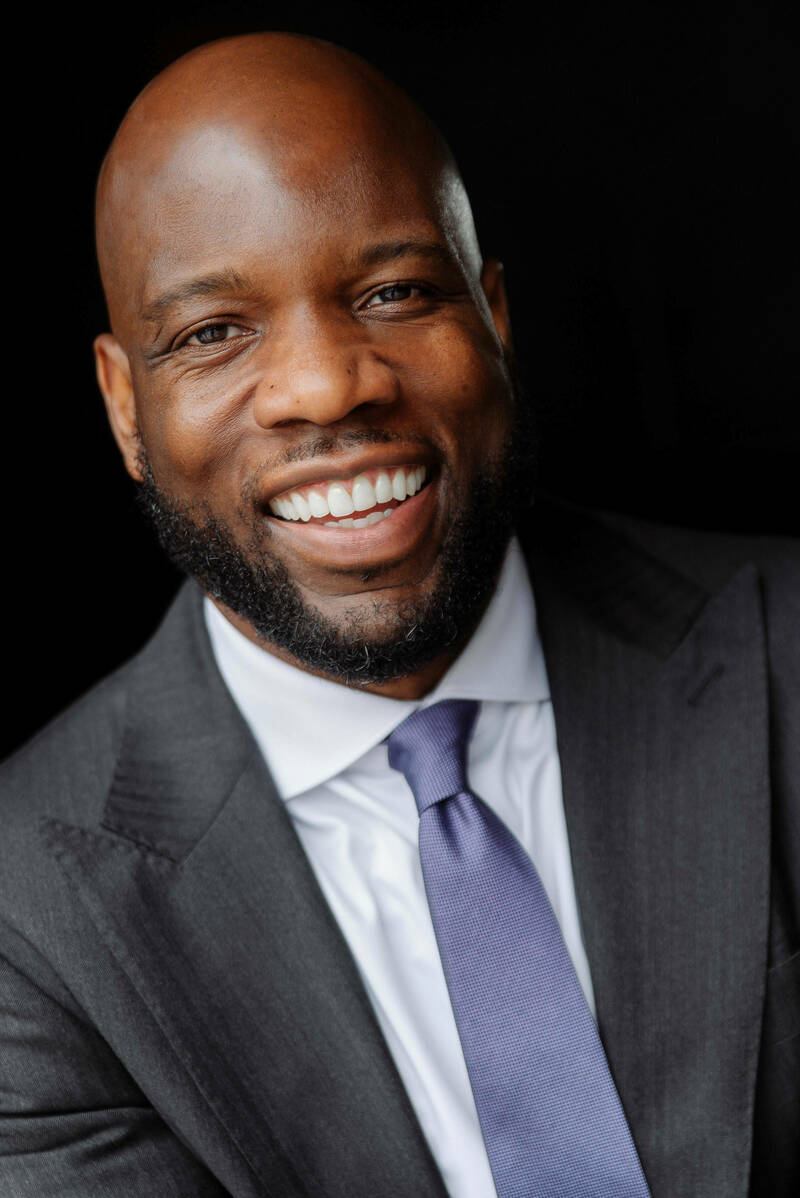
A happy family. A thriving career with a Wall Street bank on the West Coast. Life has been good to Malcolm Johnson ’98.
That was true even back when he was growing up in a Washington, D.C., neighborhood where despair overshadowed hope. Outside his own nurturing home, he witnessed the compounding toll social problems took on people who didn’t have the kind of support his parents provided.
The pandemic underscored how stark such inequalities remain, inspiring the former Notre Dame wide receiver to pursue a long-term goal. Johnson recently left J.P. Morgan to start Langdon Park Capital, a real estate management firm with a mission to invest in underserved communities.
What’s your vision for this company?
I spent more than a decade and a half as banker on Wall Street, but on the West Coast. So I thought I was living a life of Riley, because I got the best of that world and I never had to deal with snow or bad weather. But all along that path, I was thinking about how to do more for more people and for more communities. And ultimately I launched Langdon Park Capital to do that very thing.
We are a real estate investment management company, but in the private equity world we’re very unique. Although we, like many of our counterparts, strive to create real financial returns for our investors, we do it in a way that also creates value and enhances the lives of the Black and Latino people who live in the properties that our company owns and operates.
What was the impetus behind starting this when you did?
Timing is everything. It was true when I was trying to catch darts from Ron Powlus or trying to duck Lou Holtz on a bad day at practice. Timing mattered then and it certainly matters now. But 2020 just smacked all of us in the face. It provided so much clarity around what ailed society — from a health standpoint and, probably just as importantly, from a social standpoint — and none of us were immune.
The thing that really made me sit up and take notice, and that has steeled me for what I knew I had to do, was the fact that my family and I — my wife, my Notre Dame sweetheart, who I’ve been married to for now 20 years, and our three kids — our lives actually got better. We were quarantined like everybody else, but my kids were in really good schools and they’ve got all the technology and the tools they needed to still get their educations. We were able to take COVID-safe trips as a family, and this all happened in the midst of the have-nots having even less. So I knew at that point that I had to become a part of the solution.
And fortunately, because there was so much clarity, because the disparities were hyped for everyone to see, I was able to bring along partners who also believed that there was a viable business in investing in Black and Latino communities and also a solution for, “How do we create more opportunity for people who live in those communities?” So the timing could not have been better.
The need certainly seems clear, but how do you make that work from a business standpoint?
There’s two things. One, you have to think from a position of, “How can we be a better partner?” and two, “What do these communities actually need?”
I came from a community like that. I was born and raised in northeast D.C. in the 1980s. I left home for Notre Dame in 1994, and the city that I left was still recovering from the crack era. My family was held by two really proud parents who believed in education first, and our home was always kind of the beacon of hope in our neighborhood. But I grew up three blocks away from a public housing project and I saw what happens when folks feel like they have no options and no hope for living the American Dream.
I understand that, in order to actually create more prosperity, you have to think about opportunity for everyone, not just the people who live at the building that you own. So that premise is how we think about investing. How are we creating communities where every part of the ecosystem has their needs met?
Let me build something, or let me preserve something, where the residents will be vested in taking care of this building, and so my operating expenses will be lower. Let me build something where I can bring in a social-services partner to provide after-school programs for the school-age children of working parents who live at this building. And then, all of a sudden you have school-age children who do better with school. Shocker. You have school-age children who actually think about maintaining the property versus vandalizing the property, and it’s a snowball effect in every way.
Interview by Jason Kelly ’95, an associate editor of this magazine. Hear more from Malcolm Johnson on our podcast, The Endless Conversation.